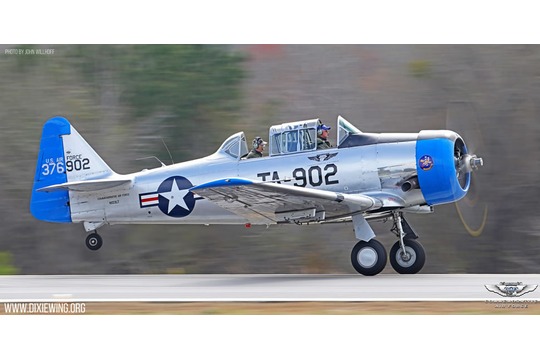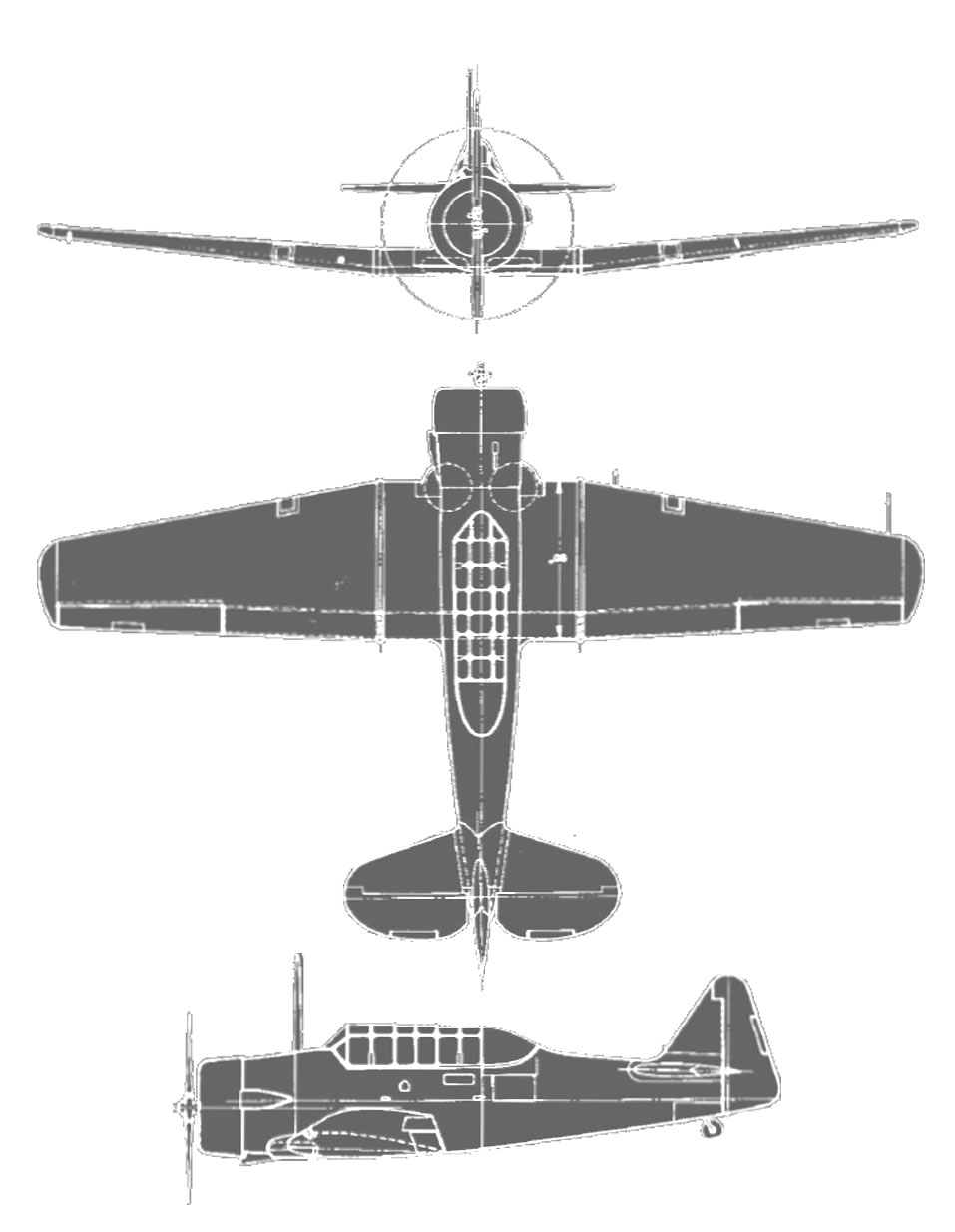SNJ-4 Airbase Georgia

Description:
This aircraft was generously donated by two of the Dixie Wing Members, Cols Morris Ray and David Peeler. Originally an SNJ-4, a 6-year restoration has been completed as an LT-6D which was used in Korea as a forward air controller and called a Mosquito. Thanks to our dedicated restoration crew, this aircraft is again in excellent flying condition. It began appearing on the 2008 airshow circuit.
Base:
Peachtree City, GA
Website:

| SNJ-4 Specs | |
|---|---|
| Role | Trainer |
| Manufacturer | North American Aviation |
| Introduced | 1935 |
| Power | 1 × Pratt & Whitney R-1340-AN-1 Wasp radial engine, 600 hp |
| Length | 29 ft |
| Height | 11 ft 8 in |
| Wingspan | 42 ft |
| Range | 730 miles |
This aircraft was generously donated by two of the Dixie Wing Members, Cols Morris Ray and David Peeler. Originally an SNJ-4, a 6-year restoration has been completed as an LT-6D which was used in Korea as a forward air controller and called a Mosquito. Thanks to our dedicated restoration crew, this aircraft is again in excellent flying condition. It began appearing on the 2008 airshow circuit.
The North American Aviation T-6 Texan is an American single-engined advanced trainer aircraft used to train pilots of the United States Army Air Forces (USAAF), United States Navy, Royal Air Force, and other air forces of the British Commonwealth during World War II and into the 1970s. Designed by North American Aviation, the T-6 is known by a variety of designations depending on the model and operating air force. The United States Army Air Corps (USAAC) and USAAF designated it as the AT-6, the United States Navy the SNJ, and British Commonwealth air forces the Harvard, the name by which it is best known outside the US. Starting in 1948, the new United States Air Force (USAF) designated it the T-6, with the USN following in 1962. It remains a popular warbird aircraft used for airshow demonstrations and static displays. It has also been used many times to simulate various Japanese aircraft, including the Mitsubishi A6M Zero in movies depicting World War II in the Pacific. A total of 15,495 T-6s of all variants were built. -- Wikipedia

